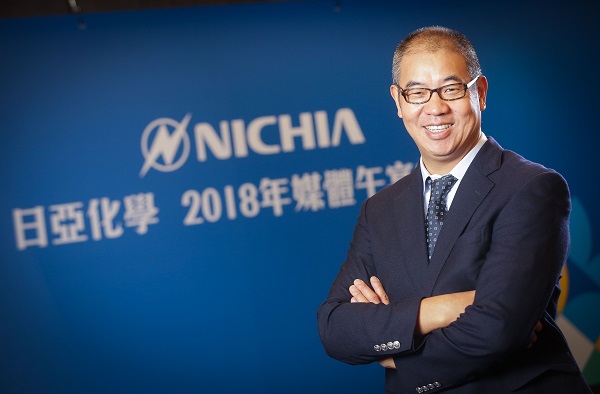LED applications have opened an explosive market in horticulture lighting. Nichia, the Japanese LED giant, set up a laboratorial plant factory in Shanghai to test how different LED light sources can alter the ingredients of plants to create medicinal effects.
By combining blue LED with various phosphors, Nichia managed to generate artificial LED light with sunlight spectrum to upgrade the quality of light, which not only enhances eye comfort for people but also improves vegetable growth. In Nichia’s plant factory in Shanghai, Chun Chia Tai, Chairman and President of Nichia’s Shanghai and Taiwan Offices, established an indoor farm to conduct experiments on plants with several LEDs.

(Image: Nichia; Chairman and President of Nichia’s Shanghai and Taiwan Offices)
According to Tai, Nichia aims to grow vegetables with intensified medicinal effects. The ingredients of vegetables could be modified through changing the spectrum of LEDs. For example, Nichia has bred vegetables containing lower sugar which would be beneficial for diabetic patients. With its unique technology of mixing phosphors with LEDs, the company is bringing horticulture lighting to a new level.
Nichia has connected with local supermarkets to sell its vegetables in Shanghai and shipped some products to the Netherlands. The wide range applications of LED have built up a bridge between cutting edge technologies and farming, bringing more healthy options for people.












